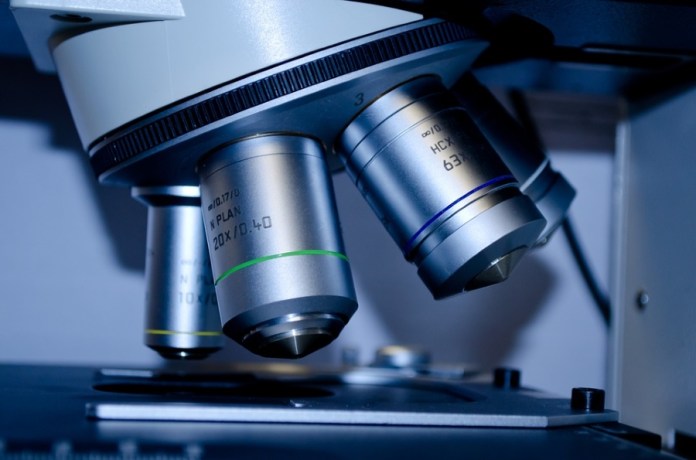A new microscope, designed by Chinese firm Motic, in conjunction with Bill Gates’ Global Good Fund, has been created in order to identify and count the number of malaria parasites found in a blood sample. Revealed at MEDICA, the EasyScan GO could change the lives of millions. Initial tests have already revealed that the artificial intelligence (AI) system is already as reliable as a human expert when it comes diagnosing drug-resistant malaria cases.
Malaria kills nearly half a million people per year around the world. As well as treating existing cases, the other major challenge for medical professionals is trying to fight the spread drug-resistant malaria, particularly in parts of Southeast Asia. The EasyScan GO AI system could help with that. Using its intelligent microscope it can be used in underdeveloped countries or where there’s a lack of trained personnel, to detect cases of malaria accurately.
The EasyScan Go system uses AI to accurately detect and count malaria parasites in blood in under 20 minutes. “Human capacity issues have long been a major bottleneck in low-resource settings, and the fact that we are able to address these issues through technological innovation is truly exciting,” says Sebastian Nunnendorf, head of research and development at Motic China.
READ MORE – Top 10 Ways Artificial Intelligence is Impacting Healthcare
READ MORE – Artificial Intelligence in Medicine – Top 10 Applications
“Malaria is one of the hardest diseases to identify on a microscope slide, said David Bell, director of the global health technologies portfolio at Global Good. “By putting machine-learning enabled microscopes in the hands of laboratory technicians, we can overcome two major barriers to combating the mutating parasite – improving diagnosis in case management and standardizing detection across geographies and time.”
In the future, the team would like to see EasyScan Go being used to diagnose other, more difficult to identify diseases. “AI and digital health are increasingly becoming the most exciting trend in healthcare, and without product leadership and Global Good’s commitment to inventing for humanitarian impact, our innovations will be truly available everywhere,” said Nunnendorf.
AI is there to make things better; usually through accuracy and speed. However, it’s not without its problems, so it takes the right balance of AI and human intervention for the perfect solution to most issues. “Deep learning has unprecedented breakthroughs across a variety of domains, spanning image processing, to drug discovery and speech recognition – there are dozens of successful use cases,” said Adam Perold, CEO and co-founder of software company, Element. Now, it’s simply a case of bridging the gaps between those at the top and those at the bottom, he says.
Source Devex




















